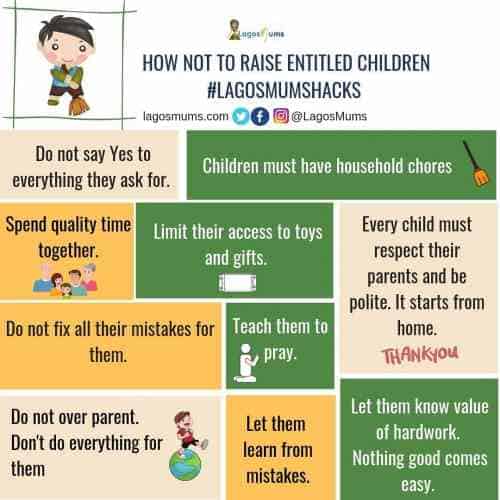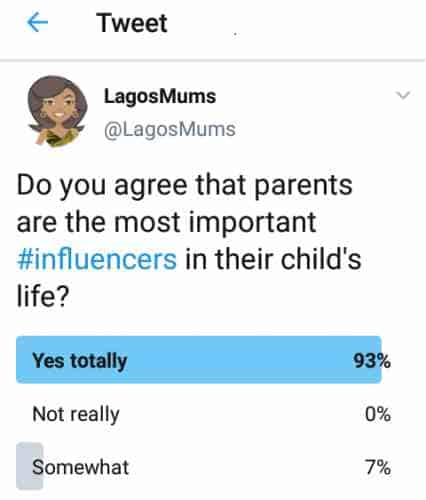Raising children who have grit should be on the top of every parent’s goal. Our goal should be to raise adults who are emotionally healthy and can thrive personally, socially and academically. Research continues to show that your child’s ability to work hard, endure struggle, fail, and try again maybe the key to determining his or her long-term success. This is where “GRIT” comes in. Below are a few ideas on how to raise children who have grit

What is grit?
Grit is a concept that challenges the idea that children who are intelligent and have the right mix of talent and luck are going to be successful in the future. Children who are smart, talented, kind, curious, and come from stable, loving homes, generally do not succeed if they are not resilient.
According to Psychologist Angela Duckworth “grit is passion and perseverance for long term goals”. It also includes the stamina and hard work necessary to make those goals a reality.
Grit is a mindset that we should start building in children from a very early age. It involves giving kids an opportunity at young ages to try to do things on their own. For example, allow your toddler to struggle to tie their shoelace or pull their sock on. It involves letting them have sufficient time to solve these problems on their own, which builds resilience and grit.
Why do children need grit?
In the Ted Talk on grit below, Angela Lee Duckworth, a University of Pennsylvania psychologist, says the most significant predictor of success in kids is not social intelligence, good looks, physical health or IQ. “It is about having the stamina, sticking with your future – day in, day out, not just for the week, not just for the month, but for years – and working really hard to make that future a reality.” Grit is “living life like it’s a marathon, not a sprint,” Duckworth says.
She found that grit, not intelligence or academic achievement, was the most reliable predictor of a positive outcome. The kids who won the spelling bee were not necessarily smarter than their peers; they just worked a whole lot harder at studying words. She found that grit matters more to a child’s ability to reach his full potential than intelligence, skill, or even grades.
Unlike IQ, which is relatively fixed, grit is the type of skill everyone can develop. Some kids naturally have more grit than others, but there is plenty you can do to help your child develop their grit and perseverance to help him succeed.
Parents as the most important influencers in a child’s life
LagosMums put up an opinion poll on Twitter asking if parents agree that they are the most important influencers in their child’s life and 93% said “YES“. We are our children’s greatest influencers and cheerleaders. Our children get influenced by others; social media, friends, teachers, domestic staff etc. But before our children get influenced by the external world, we have such a large part to play. Children will not suddenly grow up with grit. It is our job to teach them and encourage them to have grit.
So as parents, what can we do to provide that support? How do we teach our children to have grit? Below are a few ideas on how to raise children who have grit.
How to raise children who have grit
1. Parents need to model and encourage grit
It is important that we as parents model grit for our children. We have to show passion and perseverance for goals. We need to help them develop their talents and ensure that they have all they need to grow physically, mentally and spiritually.
Children do what we do more than what we say. What do you say out loud when you make a mistake? If you make a mistake do you say, “I am so stupid.” Or do you say, “Wow that did not work? Let me try that again.” Take risks and tell your children about it. Tell them about your failures and wins. Let them learn from you. In this light, ensure you are teaching them the right things. Do you have a growth mindset?
[Tweet “We are our children’s greatest influencers and cheerleaders. Here are a few ideas on how to raise children who have grit.”]
2. Model a growth mindset
In the TED Talk above, Duckworth says the best way to build grit in kids is “growth mindset,” an idea developed by Carol Dweck, a Stanford University psychologist. Growth mindset is the belief that the ability to learn can change with effort. When kids understand the brain grows in response to a challenge, they are more likely to persevere when they fail. They cultivate grit when they know the qualities they need for success can be developed through dedication and effort.
Dweck has found that people with a “growth mindset” are more resilient and tend to push through struggle because they believe that hard work is part of the process and they do not believe that failure is a permanent condition. In a growth mindset, students understand that their talents and abilities can be developed through effort, good teaching, and persistence.
[Tweet “The opposite of a growth mindset is a fixed mindset. Children with a fixed mindset believe they have a certain amount of brains and talent and nothing can change that.”]
To raise children who have grit, it is shaped by adults through the language and behaviour that we model. In order to encourage a growth mindset, be mindful of your own thinking, and the messages you send to your children with your words and actions. When parents talk positively about making mistakes, kids start to think of mistakes as a natural part of the learning process.
3. Do not raise entitled children
We all want to raise children adults who are independent, confident, successful, are team players, God-fearing, spiritually sound, wise, healthy, have a sound mind. No one will ever consciously say they want to raise an entitled child, but in reality, if you look around or are not careful, we might be raising more of these types of children.
An entitled person is someone who thinks they are owed something in life without working for it. They feel they should get what they want when they want it. They tend to have a bad attitude that goes with being entitled, or they struggle when they don’t get what they want. Read how to raise an entitled child here, and how this does not develop grit.
4. Stop controlling and start coaching
Coaches help children develop skills, but children are the ones who play the game. Your job as a parent is to support your child so (s)he can flourish and develop. Doing things FOR your child robs them of the opportunity to become competent. However, doing things WITH them teaches and builds confidence.
[Tweet “Doing things FOR your child robs them of the opportunity to become competent. However, doing things WITH them teaches and builds confidence.”]
5. Encourage your child and teach self-encouragement
All humans need encouragement. When we encourage children, it helps them feel positive and motivated and it gives them an inner voice that will serve as a source of encouragement for life.
Give your child things to repeat as mantras when the going gets tough. “Practice makes progress!” and “If you don’t succeed, try, try again!” and, “I think I can, I think I can!”. When they do not get something right the first time, they need an automatic internal comforting voice to encourage and motivate them. Otherwise, the harsh criticizing voice steps in, triggered by the disappointment.
6. Praise their process, but do not overdo the praise.
Children who get praised for their efforts—“You worked really hard at that!”—are more likely to believe that their accomplishments are due to deliberate practice. This is part of the grit required which can eventually lead them to seek challenges.
This brings to mind the idea that children should be given a trophy simply for participating and not winning. There is danger in giving the message that every effort is level should get a consolation prize. When the child succeeds and does something that is praiseworthy, reinforce the message that what got them there was their hard work.
7. Do not be afraid of your child’s feelings.
When children encounter frustration, remember that your empathy will be a critical factor in them overcome it. Instead of automatically jumping in to remove the source of the frustration, give it a larger context by communicating your compassion that he has to encounter this circumstance i.e “I’m sorry this is so hard…”
It is okay for children to get frustrated and to be disappointed. Children may cry and sulk all day, but your unconditional understanding will help them. Once the child is done grieving, he/she will want to try again, especially when you express your confidence. That is how children develop resilience aka grit.
Read: The Nigerian Parenting Style
8. Teach your child that failure is not the end
While it is tough to let your kids fail, failure is key in building grit and grit is often the key to success – you have to fall down to get back up. Giving your child a chance to fail and bounce back is one of the greatest gifts you can give as a parent.
[Tweet “Giving your child a chance to fail and bounce back is one of the greatest gifts you can give as a parent.”]
Allow your kids to struggle and feel discomfort. Do not do everything for them. Allow them to go through the emotions of disappointment and confusion, and help them figure out the next steps to make the situation better and more productive. It is within this learning process that they will develop perseverance, resiliency, and true grit, which will lead them in the direction of success for their future.
A Prescription for Children who have grit
- Get up and try again
- Have a growth mindset, think win-win
- Share positive examples of people who have shown grit.
- Failure is not the end of the road, failure is feedback
- Build confidence by having the courage to try
- Limit self-doubt! You can so what you set your mind to.
- Children need to try things and do things themselves
- Parents need to stop controlling and start coaching
- Praise your child’s effort and share daily affirmations to encourage them!
What other tips do you have? Share with us.
Read Also: How to Raise Entrepreneurs




